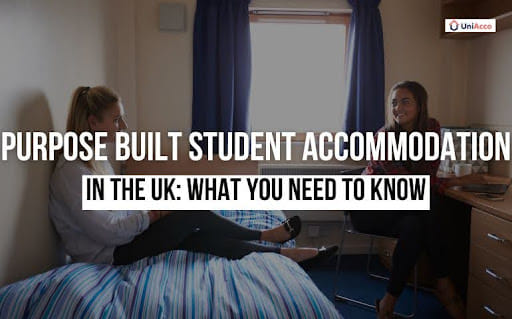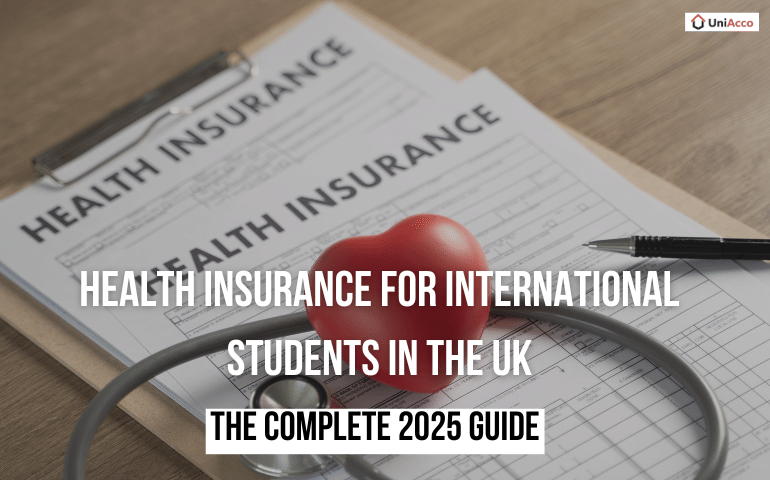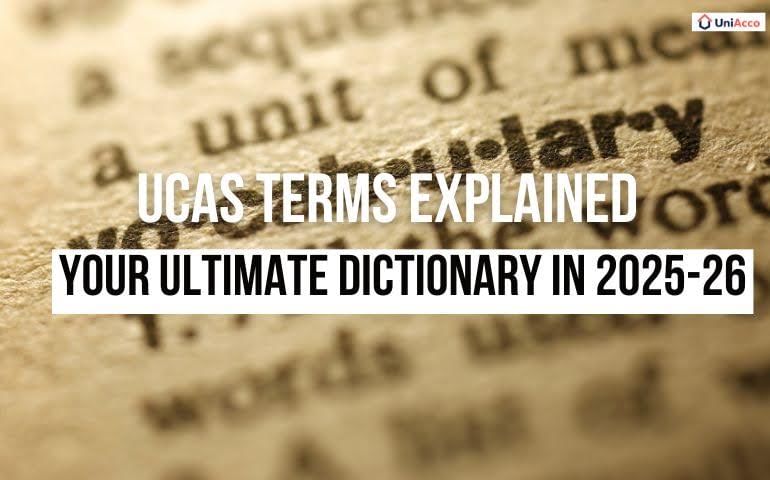Second to Sydney in population, Melbourne is home to 136,000 people, and is the centre of the metropolitan area. This makes it the hub that attracts millions of students to study at its recognised universities, opening various opportunities and creating a life that exceeds every expectation. This is what makes understanding the cost of living in Melbourne for international students so crucial, which helps them make the right financial and lifestyle decisions. As of today, the cost of living in Melbourne ranges from AUD 1,200 to AUD 2,500 per month.
This article taps into every aspect of living – ranging from the type of accommodation, transport, groceries, nightlife and more, along with tips students can use to cut down on their expenses.
The Cost Of Living In Melbourne

The cost of living in Melbourne for international students varies, but most will spend between AU$1,200 and AU$2,800 per month, depending on accommodation type, lifestyle, and personal choices. For those keen on stretching their budget, sharing a flat or choosing university housing can make a significant difference. Expenses include rent, groceries, public transport, mobile plans, study supplies, health cover, food, and occasional social outings. Here’s a summary of typical living expenses in Melbourne for international students:
| Expense | Estimated Monthly Cost (AU$) |
| Off-Campus Accommodation (shared/private) | 500 – 1,500 |
| On-Campus Accommodation | 1,200 – 1,800 |
| Groceries | 250 – 300 |
| Food (meals, cafe, occasional treat) | 500 – 1200 |
| Transport (student concession) | 180 – 250 |
| Mobile Plan & Internet | 30 – 60 |
| Entertainment & Socialising | 50 – 100 |
| Study materials | 50 – 150 |
| Clothes & personal care | 180 – 220 |
| Total On-Campus Accommodation | 2,500 – 3,500 |
| Total Off-Campus Accommodation | 2,800 – 3,200 |
| Annual Cost Of Living | 35,000 – 38,000 |
Also read: Insider’s Guide To Living In Melbourne As A Student: Tips and Tricks
Cost Of Student Accommodation In Melbourne
Melbourne offers varied accommodation for international students, from shared houses to university halls and private apartments. The cost of living for international students in Melbourne depends largely on where they choose to stay and how far they live from campus. Whether choosing communal living or a private accommodation, understanding monthly costs helps plan the student budget with confidence.
| Accommodation Type | Estimated Cost (AUD/month) |
| On-campus Residence | 1,500 – 1,800 |
| Shared Apartment/House | 800 – 1,400 |
| Private Studio Apartment | 1,700 – 2,400 |
| Homestay with Meals | 1,000 – 1,400 |
| Purpose-Built Student Housing (PBSA) | 1,500 – 2,800 |
| Room in a Boarding House | 700 – 1,100 |
| Serviced Apartment | 1,800 – 2,500 |
| Hostel or Budget Lodge | 400 – 800 |
| Temporary Accommodation | 1,500 – 3,000+ |
Understanding the range of accommodation costs is just the first step – next, let’s explore the different types of student accommodation in Melbourne and what makes each option unique for international students.
- University Residences
On-campus housing run by universities. Rent usually covers utilities, internet, and access to facilities like gyms and study rooms. Perfect if you want to live close to lectures and enjoy an easy commute.
Average Cost: A$1,000 – A$1,600 per month
- Private Student Accommodation (PBSA)
Privately managed student housing, including studios, ensuites, and shared flats. PBSAs come fully furnished, with bills included, and often have amenities like common rooms, gyms, and laundry facilities.
Average Cost: A$1,200 – A$1,800 per month
- Shared Apartments
You get a private bedroom but share the kitchen, bathroom, and living area with flatmates. This is one of the most budget-friendly ways to live in Melbourne while still enjoying a social experience.
Average Cost: A$600 – A$900 per month
Also Read: Benefits Of Living In A Shared Accommodation
- Private Apartments
Renting a flat or apartment independently gives you full control of your space. However, you’ll need to manage utilities, internet, and furniture yourself (unless the apartment comes furnished).
Average Cost: A$1,825 – A$2,300 per month
Cost Of Studying In Melbourne For International Students
The universities in Melbourne are known for their world-class offerings, shaping personalities that are now recognised worldwide. Names such as Lindsay Fox, Ruslan Kogan, Pallavi Sharda and more are pioneers who speak for the city of Melbourne. For students, the cost of studying in Melbourne can vary depending on the type of degree they want to opt for.
- Undergraduate Courses
A student pursuing an undergraduate qualification should expect annual tuition fees to range between AU$20,000 and AU$45,000. Student housing in Melbourne for international students adds another AU$14,000 to AU$28,000 per year, depending on lifestyle, making it essential to budget accurately.
| Course Type | Annual Tuition Fee (AU$) | Monthly Living Cost (AU$) |
| Arts & Humanities | 20,000 – 35,000 | 1,200 – 2,500 |
| Science/Engineering | 30,000 – 42,000 | 1,200 – 2,500 |
| Business/Economics | 30,000 – 40,000 | 1,200 – 2,500 |
| Medicine | 38,000 – 45,000 | 1,500 – 2,800 |
- Postgraduate Courses
Postgraduate fees in Melbourne range from AU$22,000 to AU$50,000 per annum. Many international students also factor in additional costs for research materials and fieldwork, which can add to the monthly living expenses.
| Course Type | Annual Tuition Fee (AU$) | Monthly Living Cost (AU$) |
| Arts/Social Sciences | 22,000 – 40,000 | 1,200 – 2,500 |
| Engineering/IT | 30,000 – 45,000 | 1,200 – 2,600 |
| Business/Finance | 30,000 – 50,000 | 1,300 – 2,700 |
| Medicine/Public Health | 35,000 – 50,000 | 1,500 – 2,800 |
- PhD Courses
PhD tuition varies by project and supervisor, but most international students pay between AU$25,000 and AU$45,000 each year. Living costs in Melbourne for students at the doctoral level remain similar, though research-related travel or materials may increase overall spend.
| Study Level | Annual Tuition Fee (AU$) | Monthly Living Cost (AU$) |
| PhD | 25,000 – 45,000 | 1,200 – 2,800 |
Also read: Top Reasons To Study In Melbourne (2025)
Cost Of Food In Melbourne
Food expenses are a pivotal part of the cost of living in Melbourne for international students. Whether shopping at renowned fresh produce markets or big supermarket chains, prices fluctuate, but there’s always room for budget-savvy choices. Markets are popular among students, offering both affordable staples and organic finds for those who want to cook at home. The table below will help students make grocery decisions accordingly:
| Item | Range (A$) |
| Milk (1 litre) | 1.50 – 4.00 |
| Bread (500g) | 2.50 – 7.00 |
| Rice (1kg) | 1.80 – 5.00 |
| Eggs (12) | 5.00 – 12.00 |
| Local Cheese (1kg) | 8.00 – 36.00 |
| Chicken Fillets (1kg) | 6.00 – 18.00 |
| Beef (1kg) | 12.00 – 30.00 |
| Apples (1kg) | 3.00 – 6.00 |
| Banana (1kg) | 3.90 – 7.00 |
| Oranges (1kg) | 2.23 – 8.90 |
| Tomato (1kg) | 3.70 – 9.00 |
| Potato (1kg) | 2.50 – 6.00 |
| Onion (1kg) | 2.50 – 5.00 |
| Lettuce (1 head) | 2.00 – 5.00 |
| Water (1.5L bottle) | 0.80 – 5.00 |
Cost Of Dining Out In Melbourne
Dining out is part of Melbourne’s culture, with choices from lively Asian cafes to sleek riverside bistros. The cost of living for international students in Melbourne includes occasional eating out and social gatherings. While the average meal at an inexpensive restaurant suits those keeping a tight living cost in Melbourne for students, trying mid-range places or the odd takeaway adds variety to your monthly spend.
| Dining Option | Range (A$) |
| Meal, Inexpensive Restaurant | 18.00 – 53.27 |
| Meal for 2, Mid-range (Three-course) | 80.00 – 200.00 |
| McMeal at McDonalds/Combo Meal | 15.00 – 20.00 |
Also read: 9 Rooftop Bars In Melbourne Every Student Should Visit
Cost Of Transportation In Melbourne
Melbourne’s public transport system is well established, serving trams, buses, and trains, ideal for daily commutes and city explorations. International students must account for travel, whether heading to lectures, part-time work, or weekend trips, which all add to their living expenses in Melbourne.
| Transport Option | Range (A$) |
| One-way Ticket (Local) | 5.20 – 11.00 |
| Monthly Pass | 143.48 – 300.00 |
| Taxi Start | 4.85 – 10.00 |
| Taxi (1km) | 1.88 – 3.00 |
Cost Of Utilities
Besides food and rent, utilities take up a notable portion of the cost of living in Melbourne for international students. Most student rentals require monthly payments for electricity, water, internet, and phone plans. Shared accommodation can help split these bills and lighten the overall Melbourne cost of living student burden. However, with UniAcco, students won’t have to worry about extra costs, as our accommodation rent comes inclusive of utilities.
| Utility Item | Range (A$) |
| Basic Utilities (85m2 Apartment) | 170.00 – 425.00 |
| Mobile Plan Monthly (10GB+) | 20.00 – 60.00 |
| Internet (Unlimited, 60 Mbps+) | 69.00 – 100.00 |
Cost Of Fitness and Leisure
Balancing coursework and leisure is vital for well-being and makes student life in Melbourne unforgettable. Fitness clubs, tennis courts, and cinemas are sought after by students and locals alike. Incorporating these into the Melbourne cost of living for international students will vary by personal preferences. Many international students benefit from discounted or university-managed sports options, ensuring leisure doesn’t eat up their savings.
| Leisure/Fitness Option | Range (A$) |
| Gym Membership (Monthly) | 30.00 – 124.00 |
| Tennis Court (Weekend, 1 hour) | 16.00 – 30.00 |
| Cinema (International Release, 1 seat) | 20.00 – 28.00 |
Key Insights on the Cost of Living in Melbourne for Students
- The biggest factor influencing living costs in Melbourne is accommodation choice and proximity to campus or the city centre. Renting privately in central areas can be costly, but sharing a place with others significantly reduces expenses.
- Food and grocery spending depends on cooking habits, with supermarkets like Aldi, Coles, and Woolworths offering affordable options for most students.
- Public transport is dependable and budget-friendly, especially with student concession cards. Melbourne’s tram network is free within the city centre, helping students save on travel costs.
- Overall, Melbourne’s cost of living for international students is comparable to other major Australian cities but tends to be lower than in Sydney.
- Those living at various Melbourne campus residences benefit from inclusive utilities and facilities, ideal for students wanting to stay close to their classes.
- Indian students should plan for a monthly budget between AU$1,500 and AU$2,000, slightly higher than living costs in India.
Effective Ways to Cut Down The Cost of Living in Melbourne for International Students

- Student Housing Or Shared Living:
Choose student housing or shared apartments to significantly lower your Melbourne living expenses compared to renting privately. Sharing living spaces also offers social connections and support networks.
- Home-Cooked Meals:
Prepare meals at home regularly and buy fresh produce from local markets or discount supermarkets like Aldi or Coles to lower your Melbourne cost of living per month on food. Cooking at home is not only economical but promotes healthier eating.
- Affordable Transport:
Use Melbourne’s extensive public transport system with a student concession card to save on travel costs within the city. Trams are free within the CBD, and cycling is an eco-friendly alternative that helps manage living expenses in Melbourne for international students.
- Student Discounts:
Take full advantage of student discounts available on entertainment, leisure, and fitness facilities. Many venues offer concession prices for students, which can make socialising and staying active affordable and fun.
- Thrift Shopping:
Shop for second-hand textbooks, electronics, and clothes online or at campus noticeboards to trim your living costs. Reusing instead of buying new cuts down unnecessary expenses.
- Budgeting and Bills:
Set a monthly spending plan with apps or budgeting tools, tracking recurring bills like utilities and mobile plans. Review and switch to cost-effective providers regularly to reduce ongoing Melbourne living expenses and student commitments.
- Free and Low-Cost Activities:
Explore free or low-cost cultural events, exhibitions, and community festivals in Melbourne. Making the most of these opportunities enriches your student experience without impacting your cost of living in Melbourne.
Living in Melbourne offers international students access to world-class education, vibrant culture, and excellent lifestyle opportunities. While the cost of living in Melbourne for international students can be significant, smart budgeting and an informed approach to accommodation, food, and transportation can ease the financial burden.
With UniAcco, you don’t need to worry about cutting corners to live comfortably in student accommodation in Melbourne. Find affordable yet luxurious student homes – all inclusive of utilities – right here with us.
Also read: Discover Places To Visit In Melbourne
FAQs
Q1: How much does an average student spend on living costs in Melbourne?
Ans: The average cost ranges between AUD 1,200 and AUD 2,500 per month, depending on lifestyle and accommodation choices.
Q2: What is the typical monthly rent for student accommodation in Melbourne?
Ans: Rent varies from AUD 600 for shared apartments to AUD 2,400 for private studios, with university halls costing around AUD 1,200 to AUD 1,800 per month.
Q3: Are there affordable food options for students in Melbourne?
Ans: Yes, students can save by cooking at home and shopping at local markets, with groceries costing approximately AUD 280 to AUD 350 monthly.
Q4: Is public transport expensive for students in Melbourne?
Ans: Melbourne offers discounted student travel passes that significantly reduce monthly transport costs, usually between AUD 60 and AUD 140.
Q5: How can I reduce my overall cost of living while studying in Melbourne?
Ans: Sharing accommodation, cooking meals, using public transport, and utilising student discounts for entertainment and shopping are effective ways to cut costs.















0 Comments